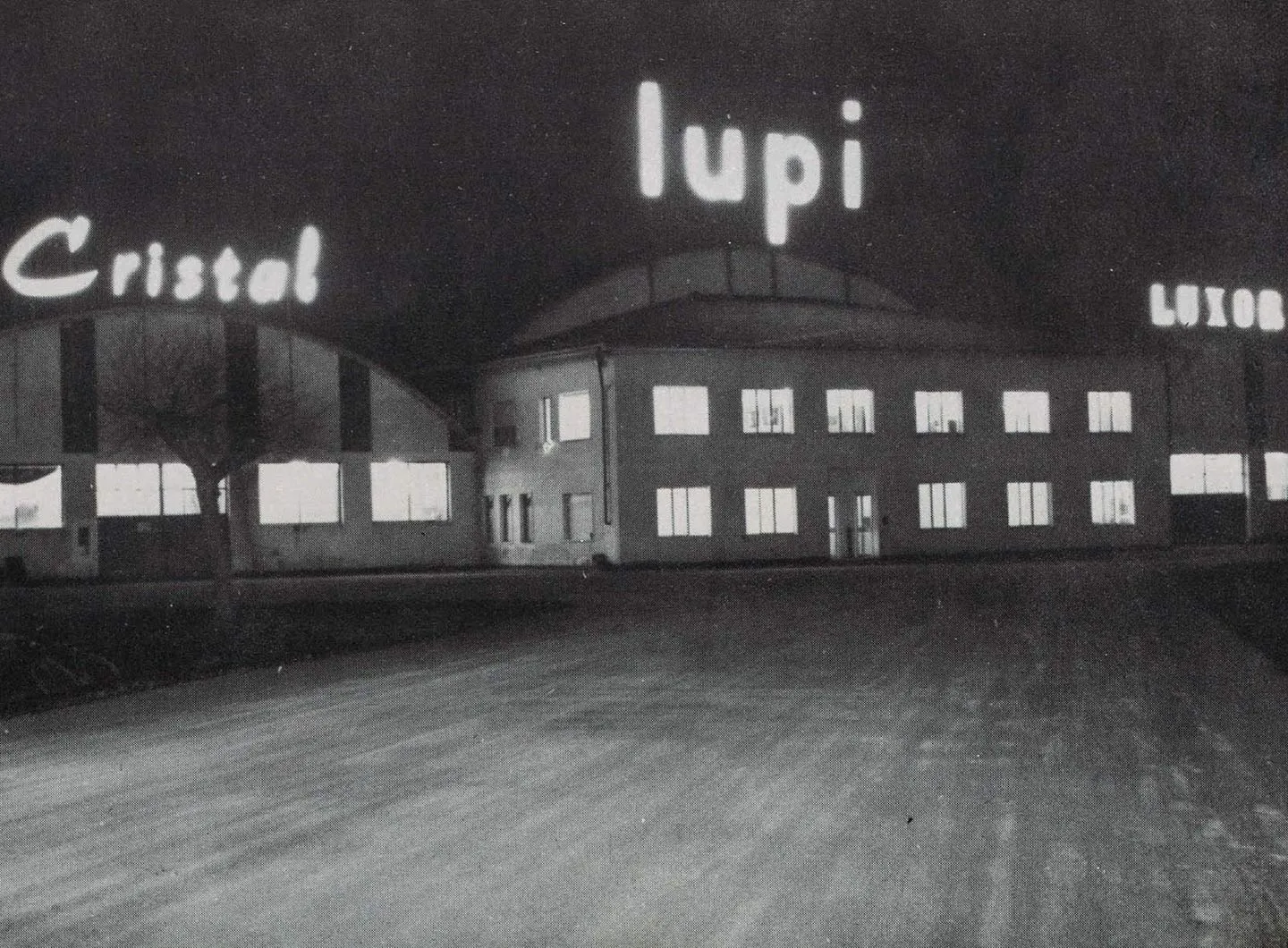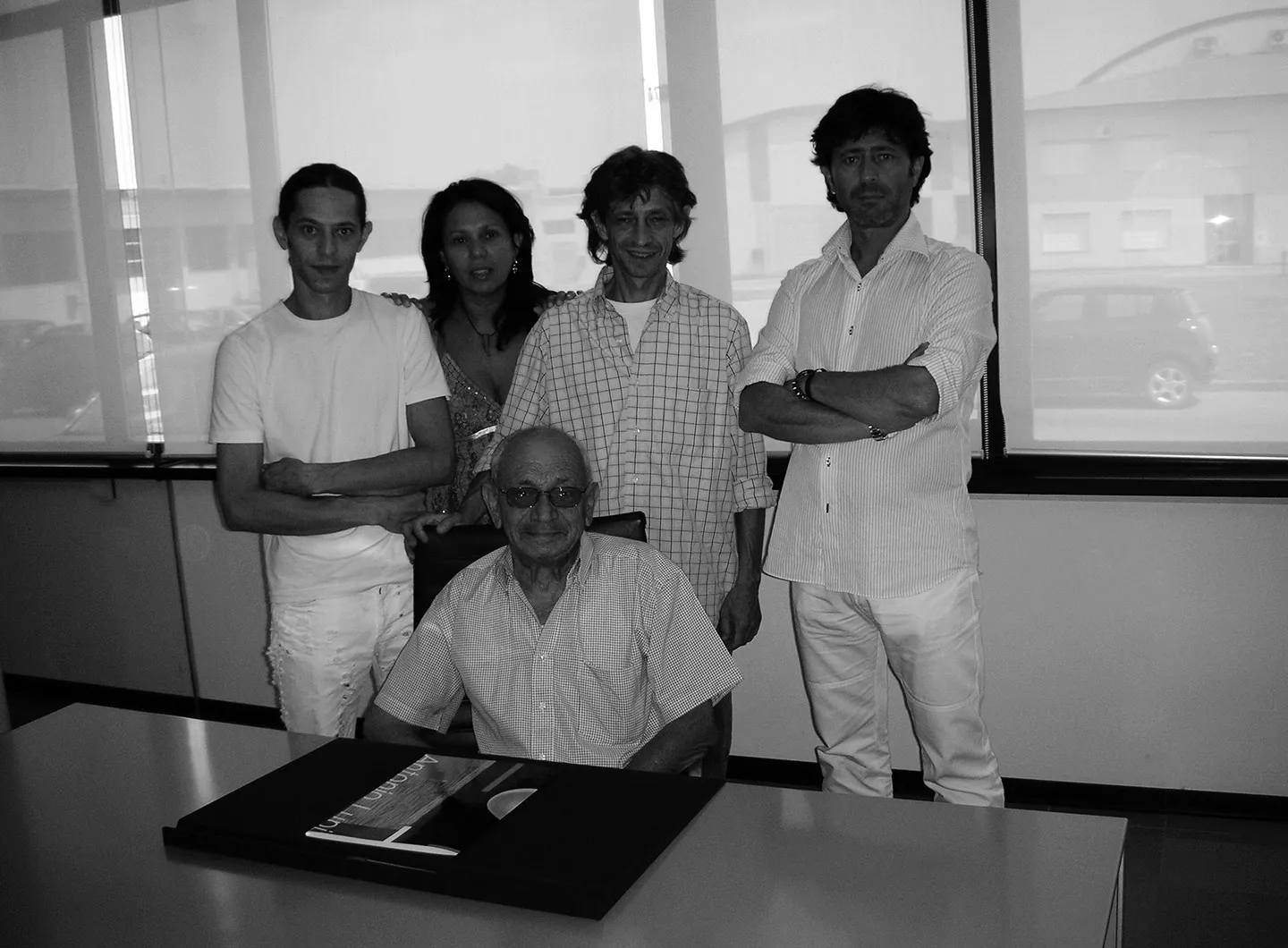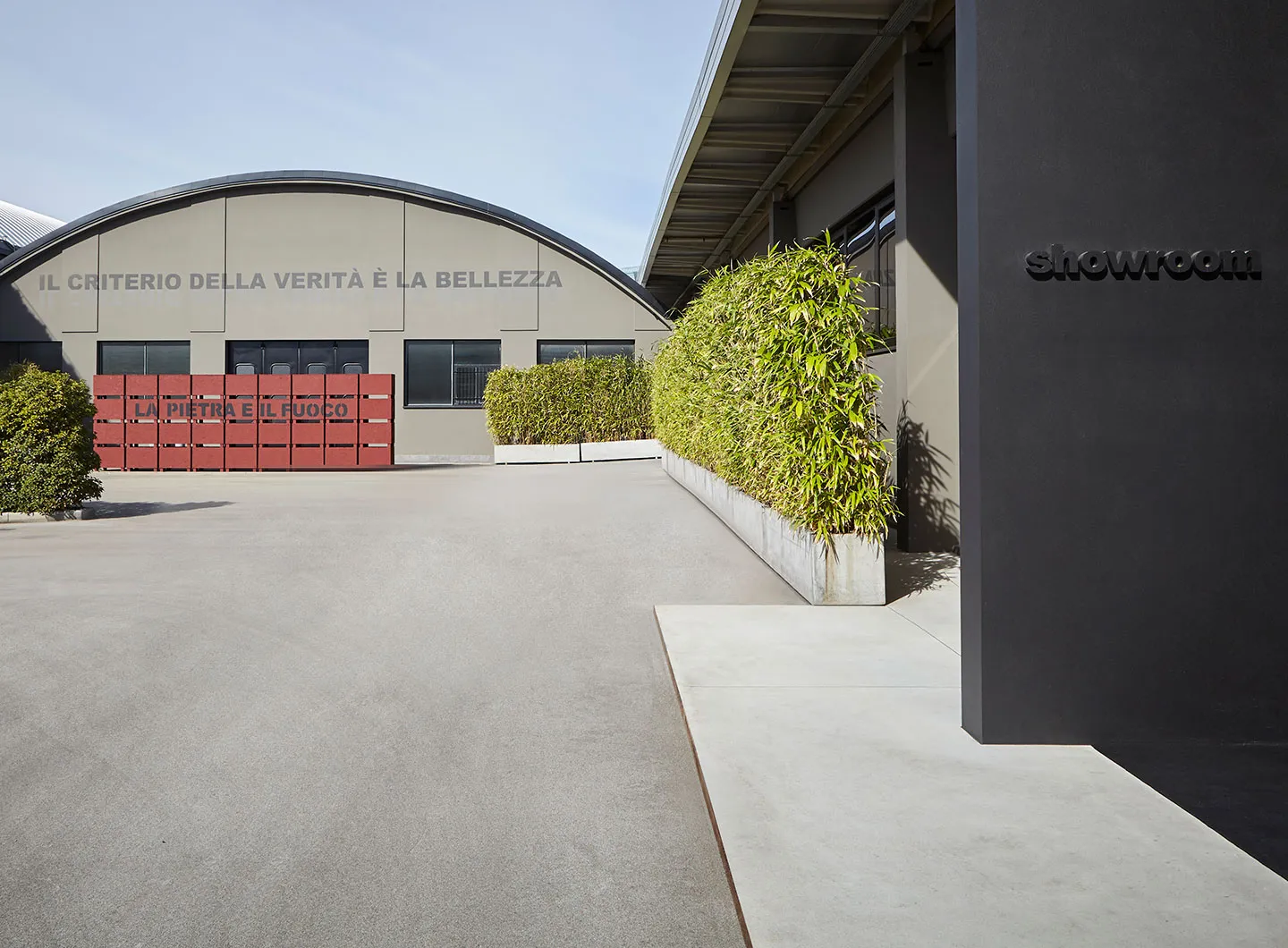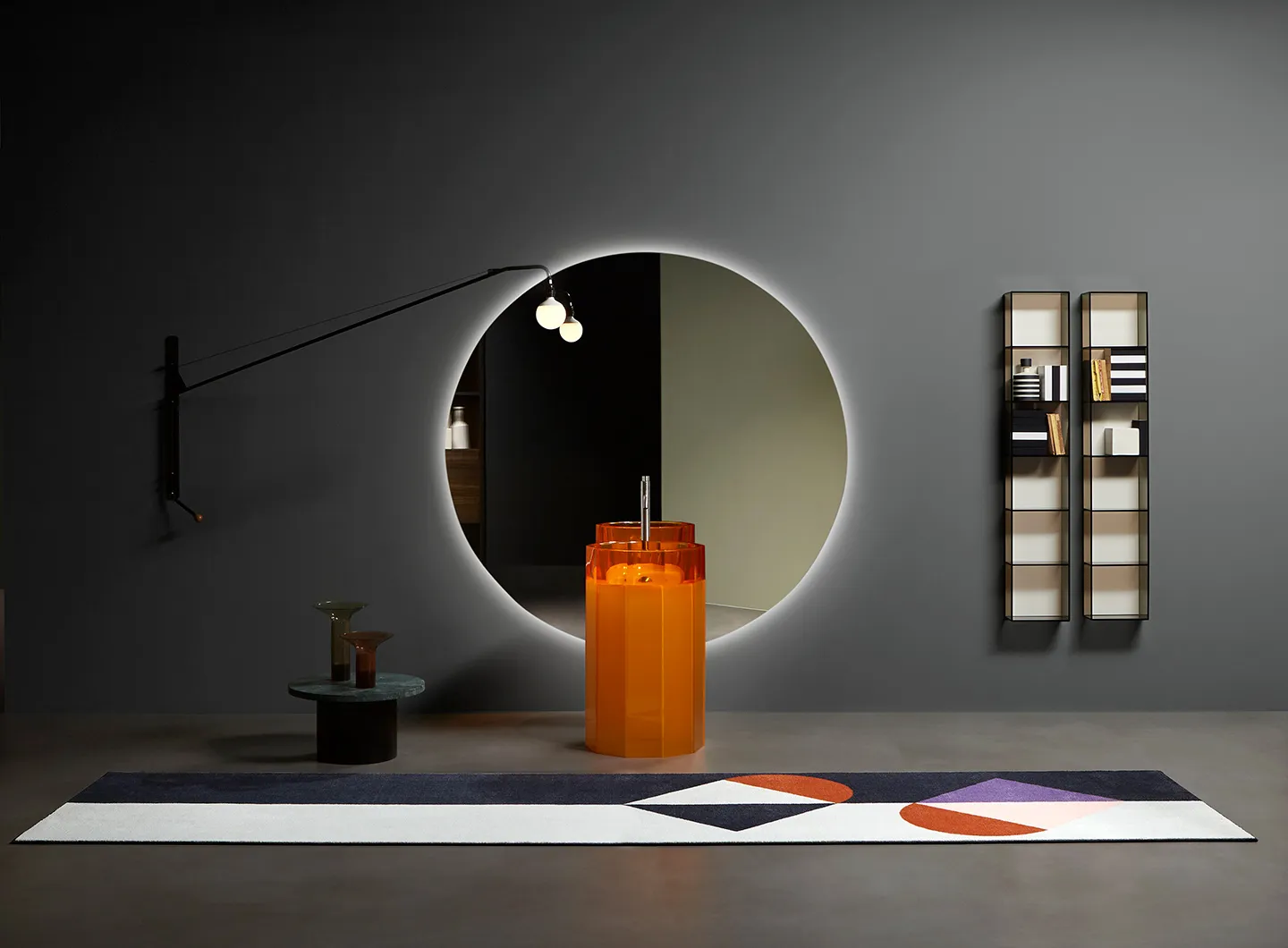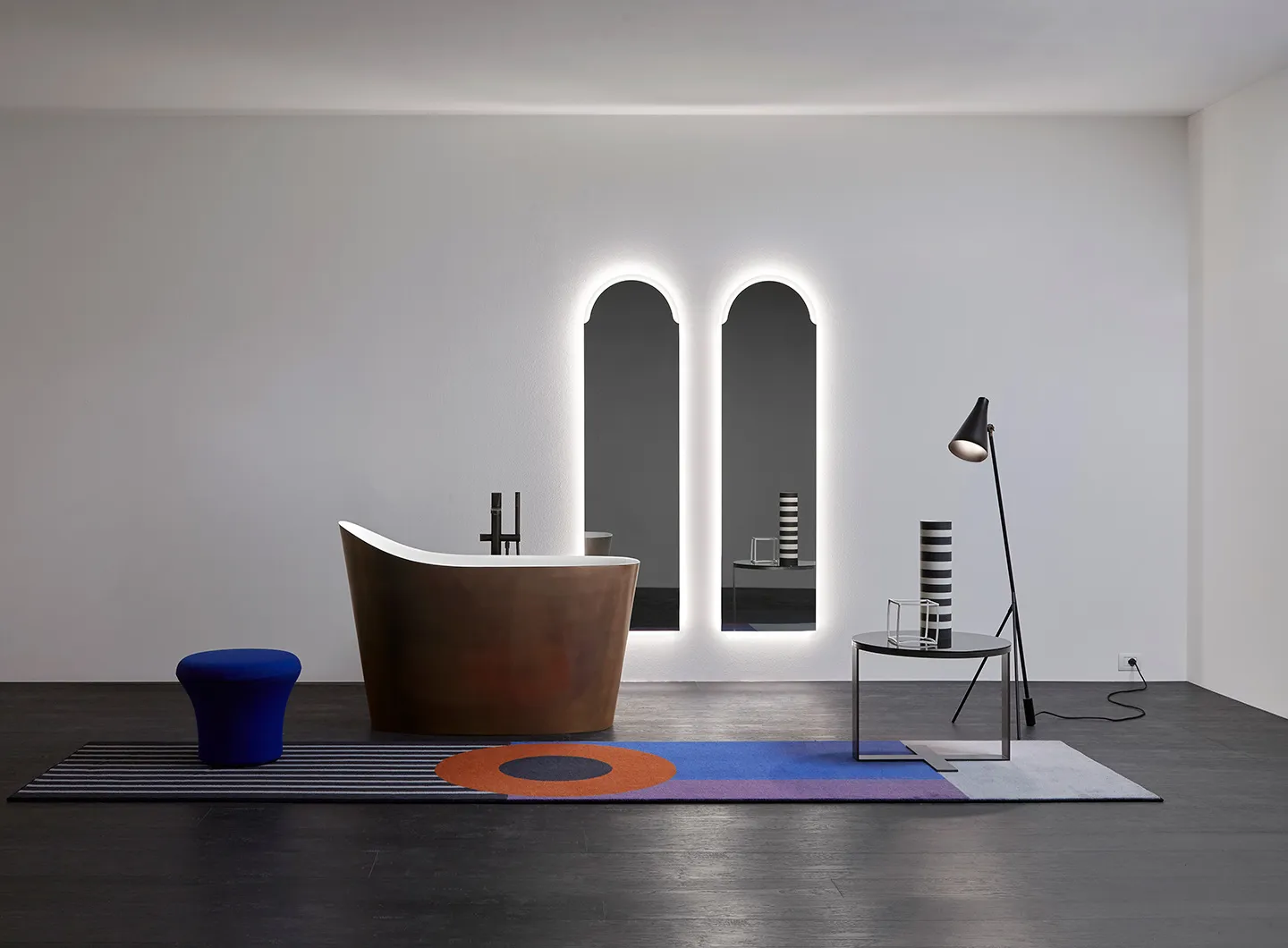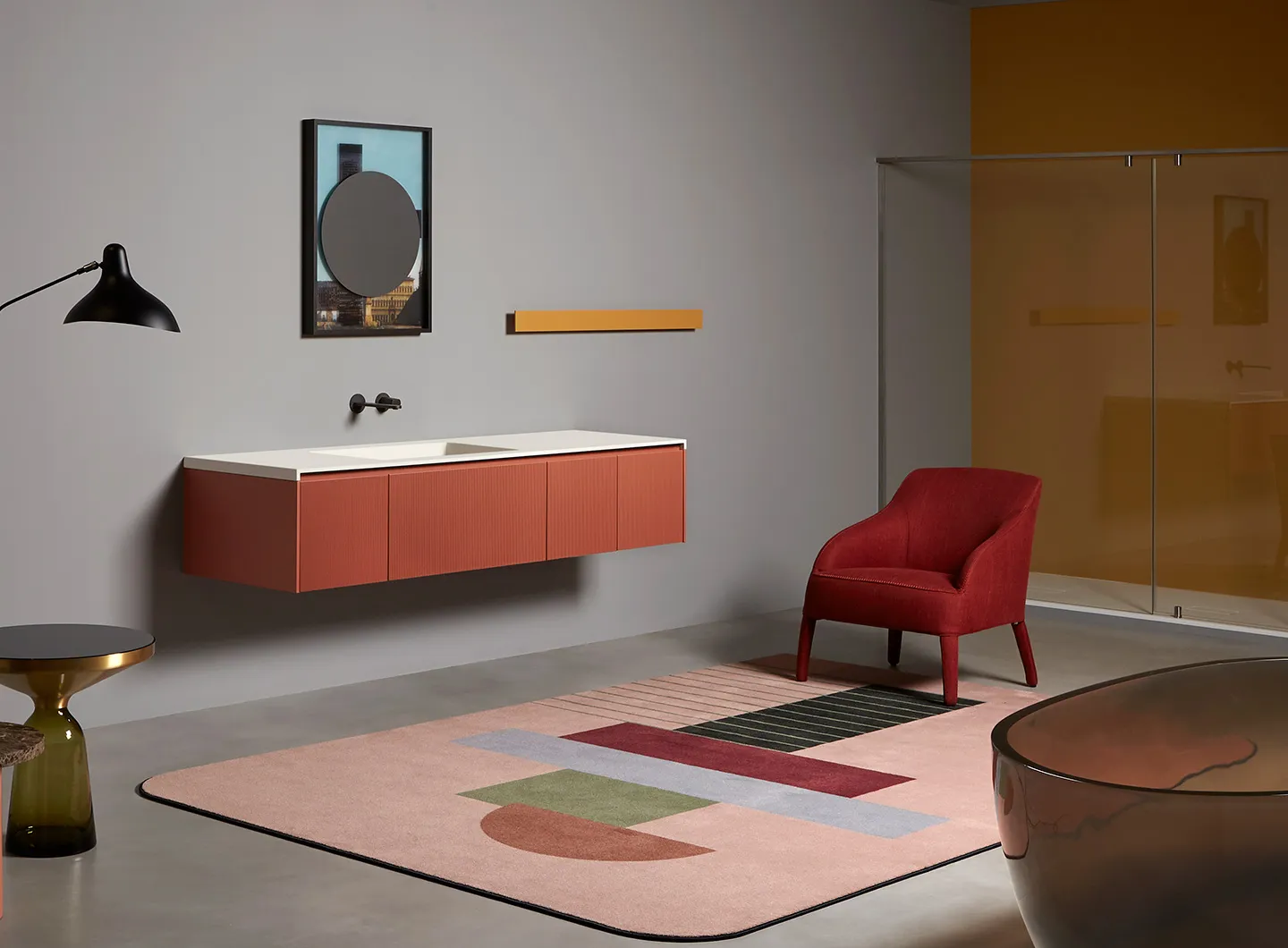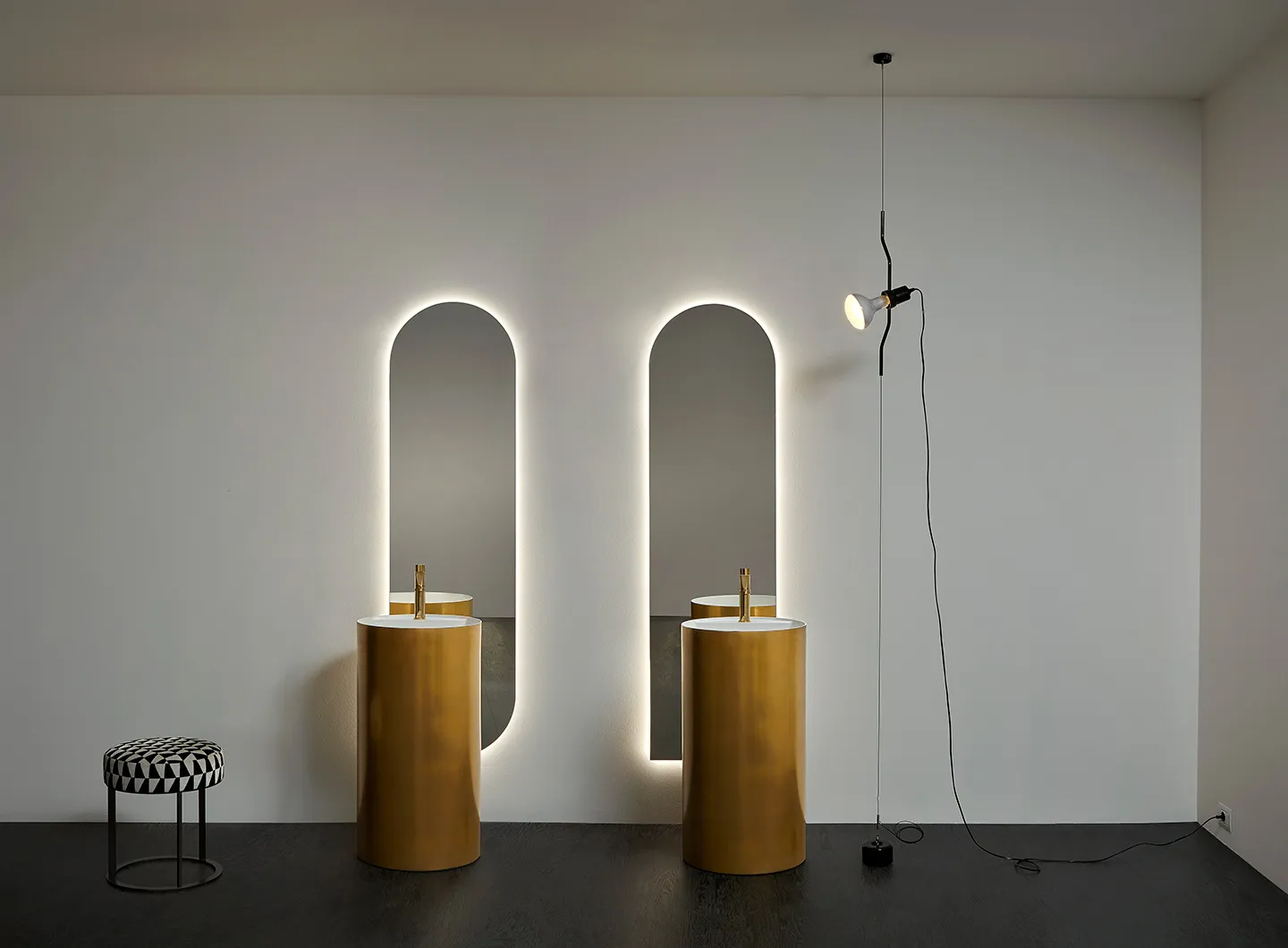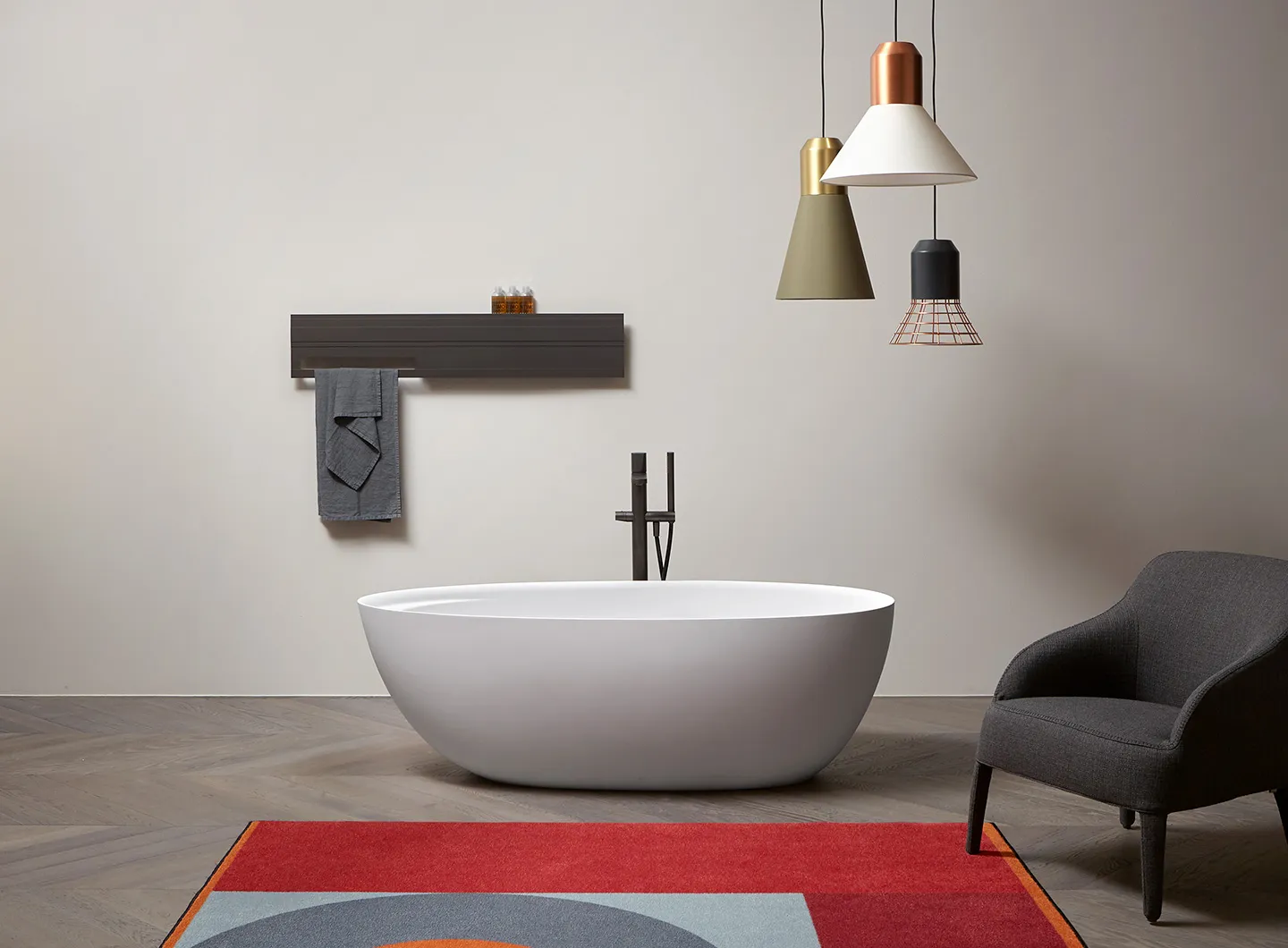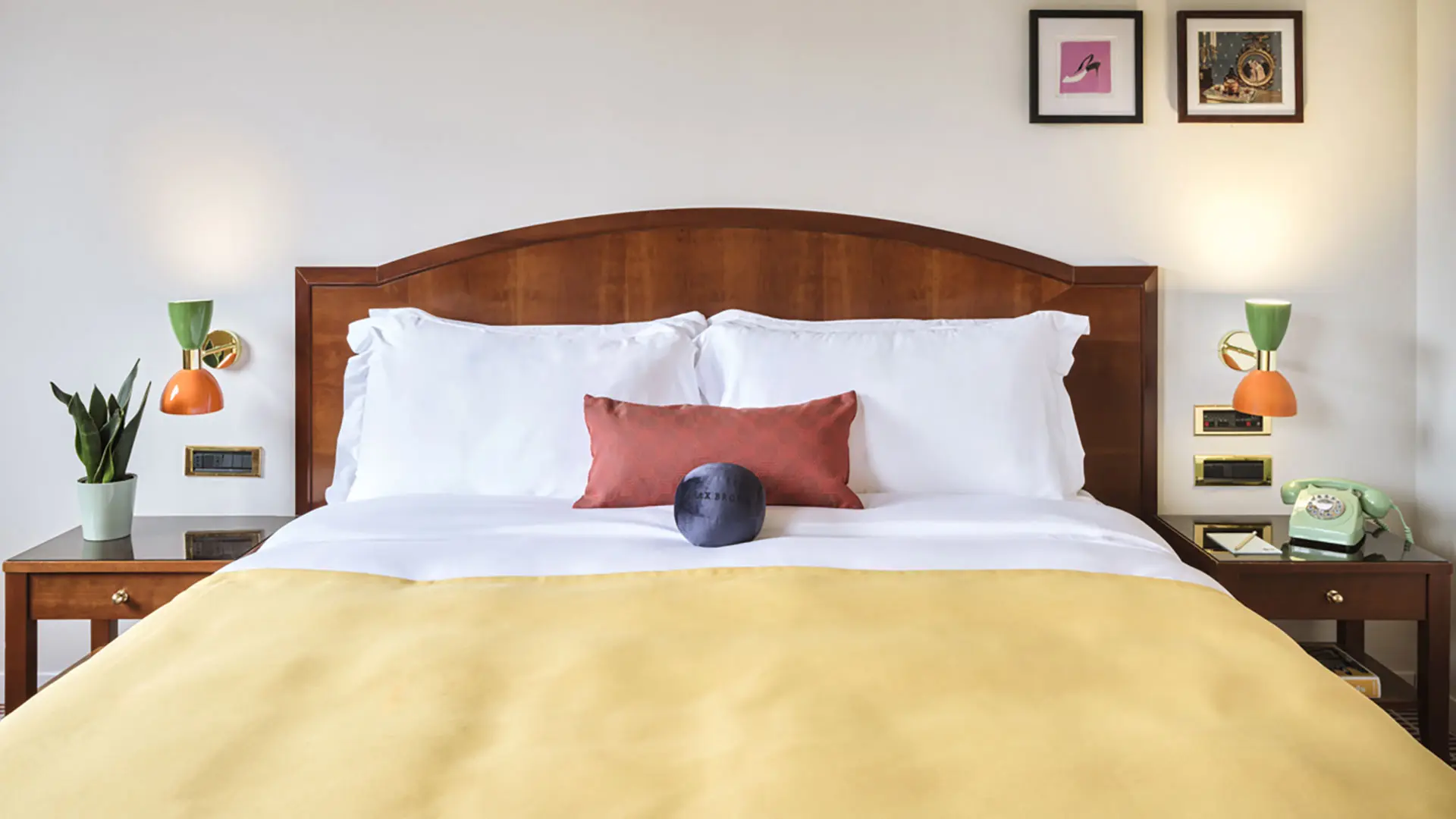In partnership with MiCodmc, a selection of establishments ripe for discovery during the 63rd edition of the Salone del Mobile.Milano, from 8th to 13th April
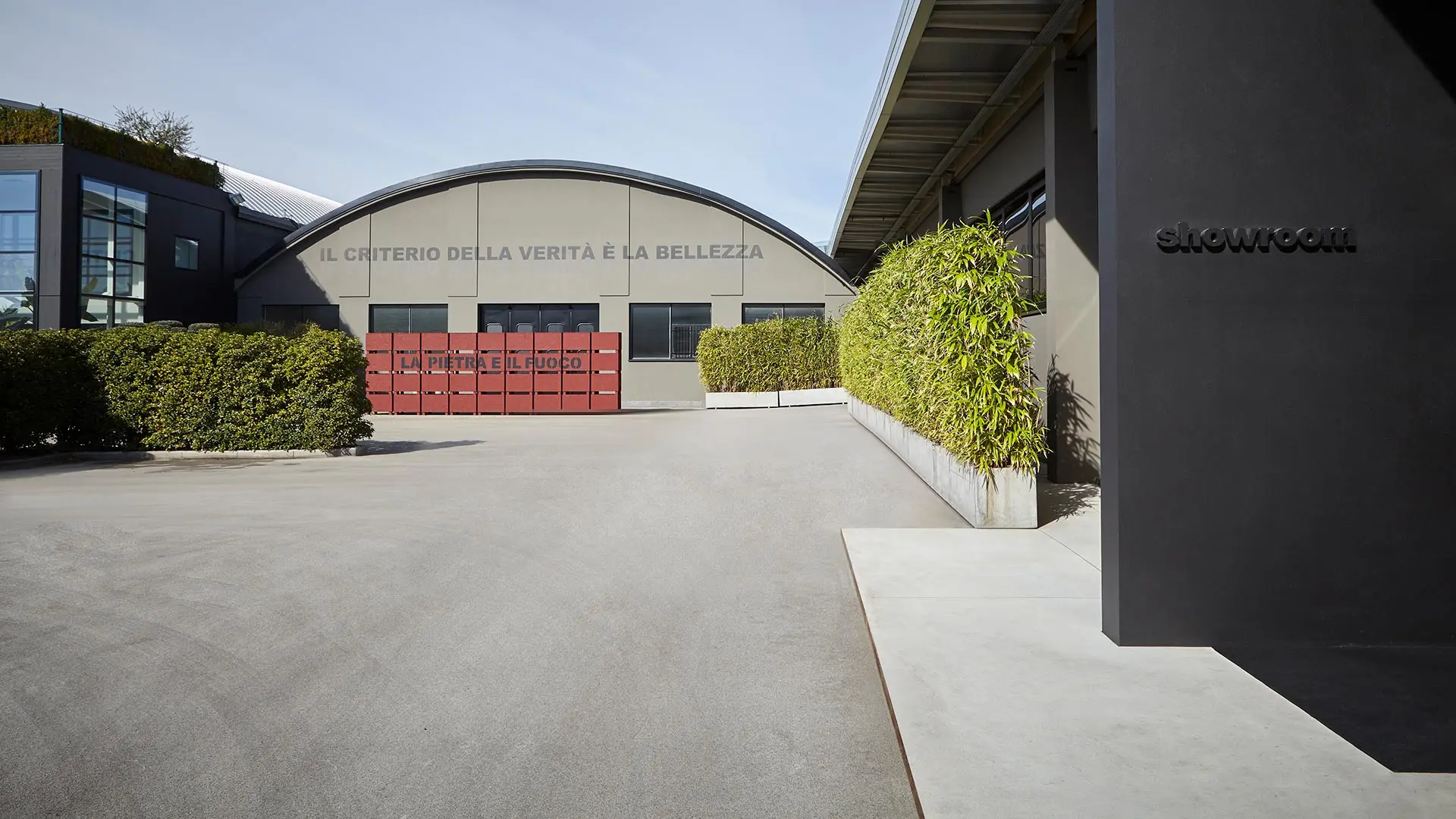
From artisan workshop to industrial concern with an eye to the future: the story of a company whose great strength lies in investment in technology, research and creativity, the balance between global and local, and stylish, tailored products. All thanks to the huge passion for their work handed down from father to son (four).
Once upon a time there was a mirror … This story begins in 1950, with an artisan workshop processing crystals and glass for furnishing purposes in Stabbia, a village in the province of Florence which, only a decade later, became an industrial manufacturer, thanks to the foresight of its founder Antonio Lupi. Cristal Lupi Luxor had also produced bathroom accessories from the start, distinguishing itself by its artisan processes, attention to detail, tailored production and precise fulfilment of orders. The company DNA is crystal clear.
It was then only a short step from being an industrial concern to becoming an international dream. During the second half of the ‘80s, as the second generation came into the company, it made the great leap into design with innovative collections and iconic objects that were far ahead of the trend for seeing the bathroom as a room in its own right, no longer a private, hidden place but one to be shown off. That led to collaborations with renowned architects and designers, as well as young designers taking part in the various competitions held by the company itself.
Over the course of its seventy years, the company – now called antoniolupi, a reverent homage to its founder – has extended its production to the entire home bathroom space and into other parts of the home with collections of rugs and furnishing accessories and, in particular, fireplaces designed specifically for bathrooms in order to expand the space even further and turn it into the beating heart of the home. Its products began to be so sought-after that the company opened monobrand showrooms all over the world, starting with its first “zero” flagship store in Milan.
Their products are often informed by the land, by the nearby marble quarries and the passing on of shared memories, married with the ability of the two hundred artisans who work with them to interpret the materials, fuelled by their indissoluble connection with the specific nature of the Tuscan territory. It is precisely this industrious presence, these territorial roots, that have paved the way for product customisation, with an infinity of solutions to respond to the infinite client demands, be they aesthetic or functional.
The story continues with the company’s latest venture, Garden of Ideas, a glass “box” inside the company complex, containing not only a research, image and development centre and an archive/library but also a tropical garden. The building epitomises the company ethos; it is a place where people can work creatively, together and in touch with nature, stimulating team spirit and encouraging everyone to give of their best.
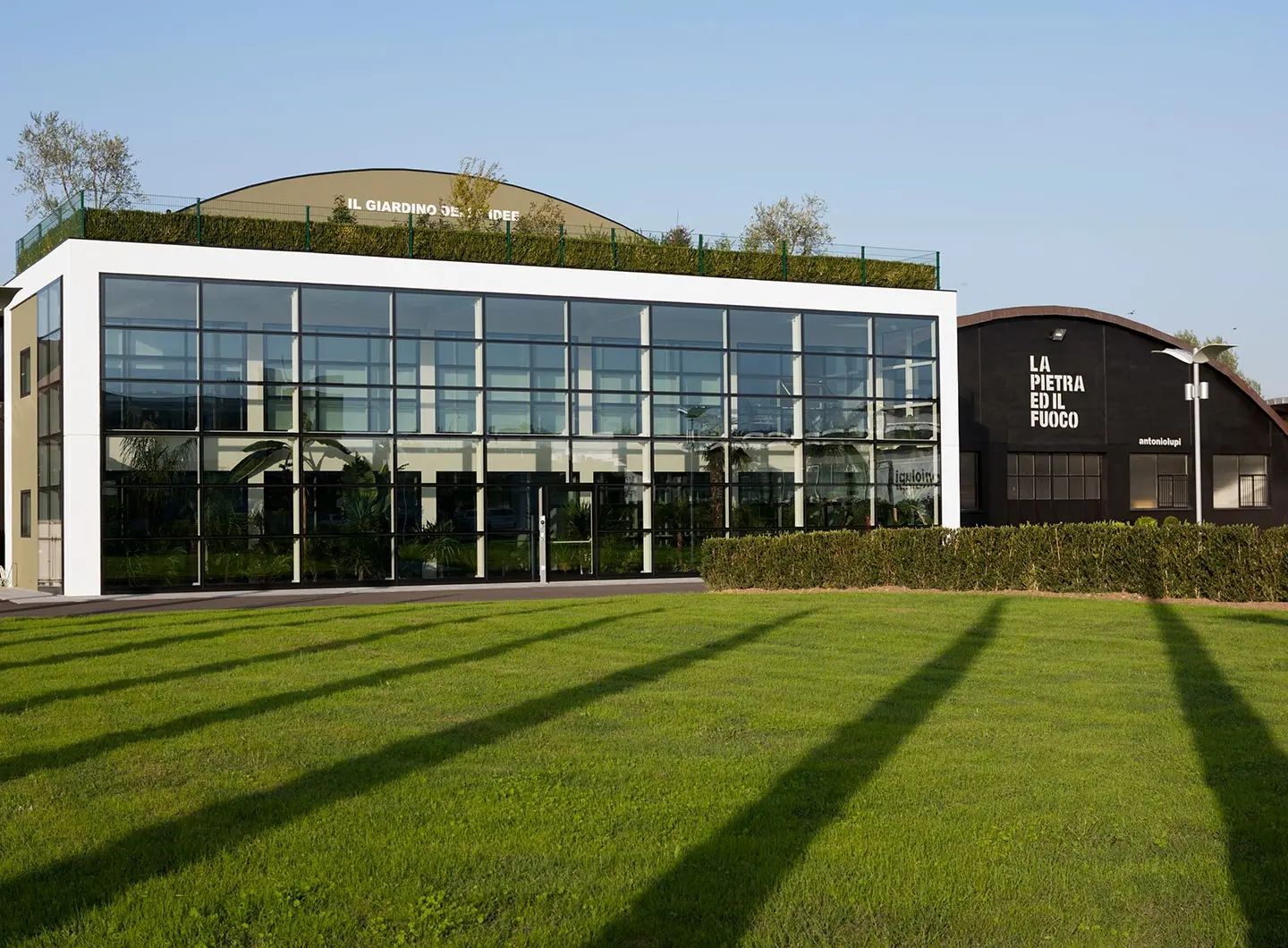
Seventy years, all testament to the company’s strong design ethos and to its starting point: man and nature. A perfect symbiosis, achieved through a consolidated industrial philosophy and productive, commercial and marketing dynamics, allows the former to transform the bounty yielded by the latter, allowing it to anticipate and dictate contemporary interior design trends. antoniolupi is synonymous with a precise, sophisticatedly minimalist style, essential in its technological perfection. An identity built on colours, textures and finishes, studded with iconic and functional objects, many of which disappear into the walls or ceiling, providing even greater space and, yet again, allowing for maximum personalisation of the room. Formal rigour and contemporary image provide a snapshot of a company that is 100% Made in Italy, operates a Just in Time system, producing only goods to order, obviating the need for inventories. Seventy years lived absolutely to the full!


 Stories
Stories
